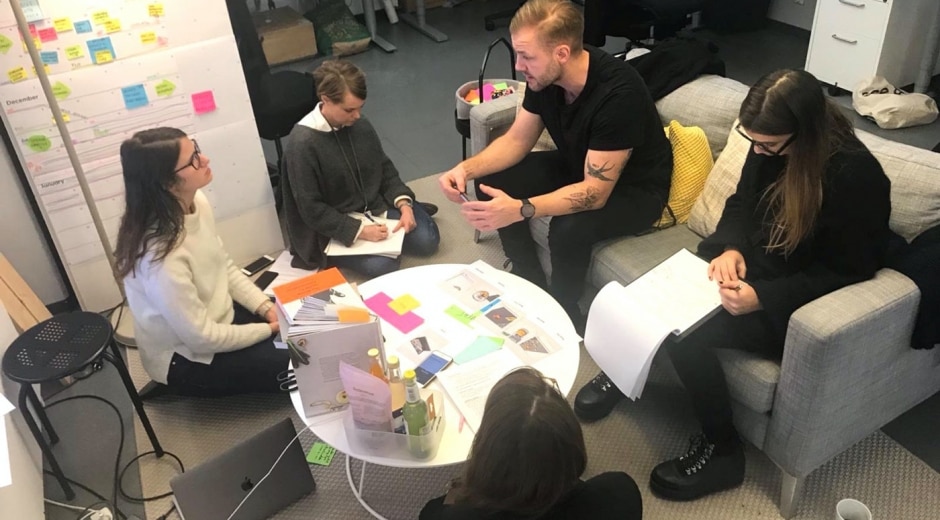What does appliance design have to do with sustainable eating? What is sustainable eating, even? These are questions the Electrolux Design team realized it needed to answer when the company decided to take its sustainability approach in a new, maybe unexpected direction. The result – to be unveiled in 2021 – could be a kitchen that is the first of its kind.
This, however, is not the story about the solution, but about the journey, which began in 2019. Electrolux, already considered a sustainability leader in the appliances industry, then celebrated its 100th birthday by setting new 2030 targets that went beyond its products and operations to focus on consumer behavior. One of these targets was to make sustainable eating the preferred choice. Electrolux also put its money where its mouth was by committing to fund the Electrolux Food Foundation with 100 million SEK.
Now the company’s consumer experience teams “only” had to figure out how to achieve these new targets. The design team in particular – with its Human Touch approach requiring foresight through an understanding of emerging trends – set out to tackle sustainable eating.
“We already knew that that the food industry is one of the biggest threats to our climate, and we did a quantitative study to understand people’s attitudes, behaviors and barriers when it comes to sustainable food practices,” said Pernilla Johansson, Head of Electrolux Group Design. “This helped us uncover some ‘green gaps’, meaning the difference between sustainable intentions and actual actions. But it wasn’t enough – we needed a more detailed and richer understanding of the topic. That’s why we undertook our maybe most ambitious research project ever.”
Observations – more than a cherry on top
In addition to immersing itself in the wide array of available desktop research on the sustainability of the global food system, the design team connected with multiple experts around world. From NGO representatives to renowned chefs and experts on key topics like agriculture and packaging, the team developed new layers of understanding on topics such eating, food waste and nutrition.
To dig even deeper, the next research phase was contextual interviews. For example, a visit to Bocuse d’Or winner Mathias Dahlgren in his lacto-ovo-vegetarian restaurant Rutabaga reinforced the understanding that food preservation and storage are crucial in any plant-forward kitchen.
Finally, understanding early adopters of sustainable eating would prove to be an important ingredient in the design team’s research. And it went a lot deeper than interviews.
“Surveys and desktop research could only take us so far. We used a home diary and a photo journal to document their eating and cooking week. Then we conducted contextual interviews, through cook-a-longs at their homes. By talking to them and observing them in their natural context during a longer period, we could study intuitive and authentic behaviors, that are difficult to capture in a normal interview,” said Pernilla. “Then a few of the early adopters participated in co-creation sessions with our design team, and we asked them for feedback on some early ideas.”
The conclusion? There’s a wealth of different types of “sustainable eaters” and an even broader range of topics to focus on. The learnings from the desk research, the trend analysis, the expert interviews and the early adopter research were synthesized into 15 themes, to be fodder for solutions for the future. How these insights will come to life remains a closely guarded secret at Electrolux, but followers of the company should keep an eye out during 2021.
“Our observations have unlocked new insights about the link between diversified eating and sustainability, and about the role that appliances can play in the zero-waste kitchen. For some, the blender isn’t just a blender. It’s a food upgrader, unlocking new value in what used to be food scraps,” said Pernilla. “This project has reinforced our belief that the kitchen and related solutions will be important enablers as society moves towards a more sustainable food system. We’re exploring this through design and look forward to sharing our first concepts shortly.”


